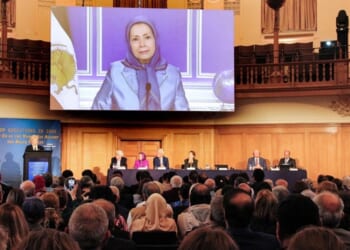
More than 50% of American women under the age of 50 who don’t have children say they have no desire to become mothers, as the nation’s fertility rate has reached an all-time low, according to the 2025 American Family Survey.
The annual study, conducted by the Wheatley Institute and the Center for the Study of Elections and Democracy at Brigham Young University, and the Deseret News, was conducted between Aug. 6-18.
This past summer, federal data showed that the fertility rate in the U.S. had dropped to an all-time low in 2024 to less than 1.6 children per woman. That rate is below the estimated 2.1 births per woman needed to maintain a stable population. Data from the Centers for Disease Control and Prevention’s National Center for Health Statistics also show that America’s general fertility rate — the number of births per 1,000 females ages 15–44 — declined by 22% between 2007–2024. From 2007–2023, the number of births fell 16%. Age-specific birth rates declined for females in age groups 15–34, remained unchanged for women ages 35–39, and increased for women ages 40–44.
“There is broad consensus among demographers and public health experts that the situation is concerning, posing long-term risks including labor shortages, strain on social safety nets, and economic slowdown,” researchers note in the report. “Among the general public, however, only a quarter of Americans say they believe the country is having too few babies. And a third of the population admits they don’t know whether there are too many, too few, or the right amount.”
Only 45% of respondents under 50 in the study who don’t have children expressed any interest in becoming parents. Of that share, some 38% stated they did not want children, while the remainder were undecided.
While 50% of men under 50 who are not yet fathers said they would like to have children, only 40% of women said the same. Some 31% of women stated that they “definitely” do not want children.
A new report from the Pew Research Center also recently highlighted that the share of 12th graders who say they plan to get married has declined precipitously among girls, and fewer of them are interested in having children.
Among the most common reason cited in the American Family Survey for respondents not wanting children is the lack of money. Finances were also a standout issue for families with children.
“The perceived high cost of raising children is the single most important reason Americans offer for why they have limited the number of children they have had or plan to have. This concern is twice as prevalent as the next two most prominent reasons for having fewer children — lack of personal desire and lack of a supportive partner,” researchers note. “Put simply, Americans report that their worries about costs have the very practical effect of reducing the number of children they choose to have.”
More than 70% of Americans describe the cost of raising children as unaffordable, according to the American Family Survey. This reflects a 20% increase over the last decade and a 13% increase over the last year.
“This deep concern about the costs associated with raising a family emerges from multiple indicators, though not all show the same spike we see in concern about the costs of raising children,” researchers said. “When we ask about the most important problems facing families, it is clear that across party lines, income levels, and race-ethnicity, Americans say economic issues — not a culture war phantasm — are the defining challenge.”
Contact: leonardo.blair@christianpost.com Follow Leonardo Blair on Twitter: @leoblair Follow Leonardo Blair on Facebook: LeoBlairChristianPost

















